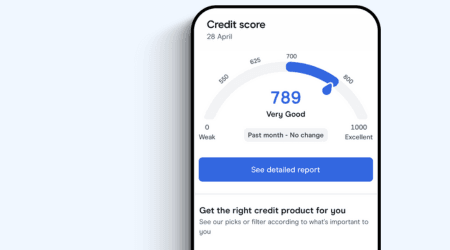Hey average earner! You’ll be $804 better off after stage 3 tax cut changes

I'm not really sure who "middle Australia" is, but they're getting a bigger tax cut.
The Australian government has announced changes to the proposed stage 3 cuts, planned to come into effect from July 1 this year.
The numbers are a little complicated but in short, Australians earning between $45,000 and $135,000 a year are getting a further tax cut of $804.
That's on top of the previous stage 3 tax cut plans. So someone earning the median Australian income of $83,200 was going to get a $955 tax cut. Now they will get a $1,759 tax cut.
The lowest earners will now get very small tax cuts (better than what they were getting before – nothing). And Australians earning over $135,000 will still get tax cuts under the new rules, but less than previously planned.
- Note: these changes are still just announcements at this stage and the actual details may change as they go through parliament.
How will these changes affect you?
If the new changes come into effect, most Australians will get an extra $804 a year tax cut, in addition to the cut proposed in the previous stage 3 changes.
People earning less than $45,000 will now also get a tax cut, but a smaller one.
If you earn $40,000 a year you'll pay $654 less in tax.
It's the really high earners who miss out (while still getting pretty big tax cuts!).
Let's say you earn $200,000 a year. Under the old stage 3 you were looking at a $9,075 tax cut. Now it's more like $4,529.
Stage 3 tax cut changes
| Annual income | Previous stage 3 tax cut | New stage 3 tax cut | Change |
| $30,000 | $0 | $354 | $354 |
| $50,000 | $125 | $929 | $804 |
| $70,000 | $625 | $1,429 | $804 |
| $90,000 | $1,125 | $1,929 | $804 |
| $110,000 | $1,625 | $2,429 | $804 |
| $130,000 | $2,575 | $3,379 | $804 |
| $150,000 | $3,975 | $3,729 | $246 less |
| $170,000 | $5,375 | $3,729 | $1,646 less |
| $190,000 | $7,575 | $4,529 | $3,046 less |
Source: Finder calculations based on reported stage 3 tax cut changes due to come into effect from 1 July 2024. These figures do not include the Medicare levy.
If you're still a bit confused, here's a basic explanation of what is happening.
The previous government had already announced changes to Australia's tax system, called the stage 3 tax cuts.
The previous stage 3 tax cuts
- Under the previous government, the stage 3 tax cuts (due to come into effect in July 2024) would remove the 37% tax bracket for people earning more than $120,000 a year.
- The 32.5% tax rate would fall to 30% and apply to anyone earning between $45,000 and $200,000.
- This would have given a tax cut to many Australians, but in a way that benefits high earners much more than lower earners.
- If you earned $65,000 a year you'd get a $500 tax cut compared to the current tax rates. But if you earned $150,000 you'd pay $3975 less in tax.
The current government is tweaking these changes.
The current government's new stage 3 tax cut changes
- Reportedly, the lowest tax rate (for people earning $45,000 or less) will fall from 19% to 16%. This will save someone earning $45,000 a year $804. And this will benefit people in higher brackets too.
- The 32.5% tax rate will fall to 30% as previously planned, but will now cut off at $135,000.
- Anyone earning over $135,000 will be taxed at 37% (this bracket currently starts at $120,000).
- The top tax bracket of 45% will now kick in at $190,000 (instead of $200,000).
- These proposed changes are not finalised and may be subject to change.
Get some money saving tips to help you beat the cost of living crunch.





